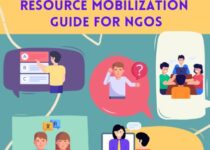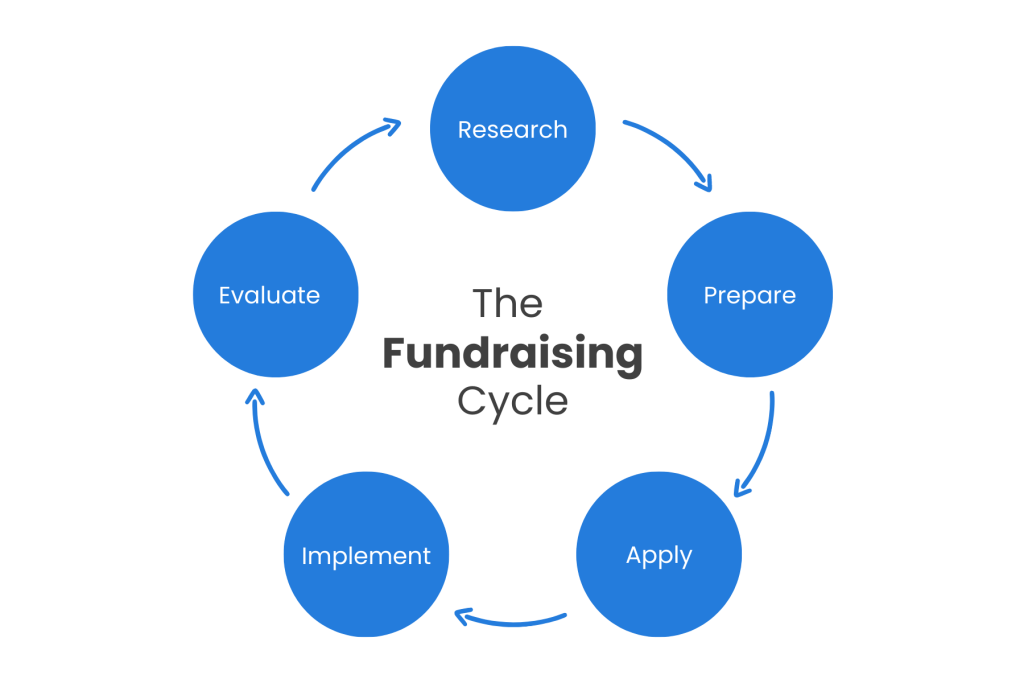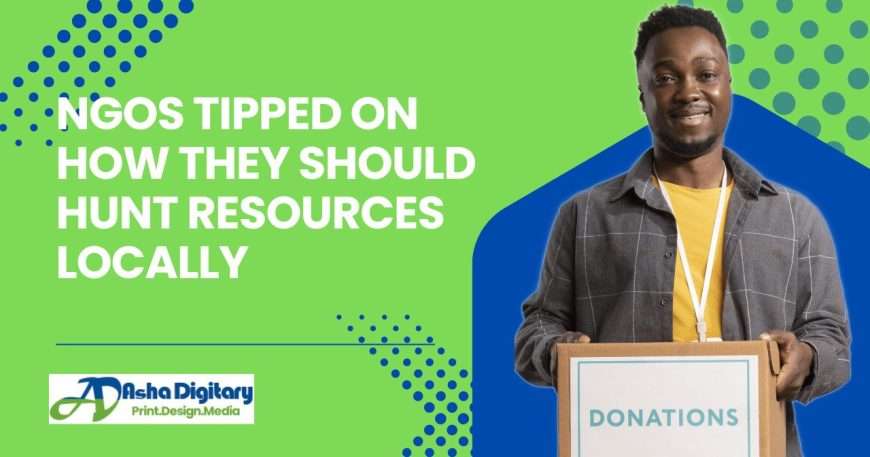Hunting Local Resources for NGOs
Introduction
In today’s rapidly evolving global landscape, Non-Governmental Organizations (NGOs) play a pivotal role in addressing a myriad of societal challenges. To sustain their impactful missions, NGOs must continuously hunt for resources. However, the approach of tapping into local resources remains underutilized. This strategy not only fosters sustainability but also strengthens community bonds. This comprehensive guide will provide NGOs with insightful tips on how they can effectively hunt resources locally, ensuring both their longevity and the enduring support of their communities.
NGOs Tipped on How They Should Hunt Resources Locally
Defining Local Resource Hunting
Local resource hunting involves identifying and utilizing resources within a community to support and sustain NGO activities. These resources can range from financial support, volunteer efforts, and in-kind donations to leveraging local expertise and facilities. The emphasis is on harnessing the assets that are already available in the community, which can lead to more sustainable and culturally relevant solutions.
The Benefits of Local Resource Hunting for NGOs
Hunting for local resources offers numerous benefits for NGOs. Primarily, it reduces dependency on external funding, which can be uncertain and volatile. By fostering local support, NGOs can build a stable base of resources that is less susceptible to the fluctuations of international aid. Furthermore, engaging the local community creates a sense of ownership and responsibility towards the NGO’s initiatives, leading to greater community involvement and project success.
Building Community Trust through Local Sourcing
Trust is the cornerstone of any successful NGO. By sourcing resources locally, NGOs demonstrate their commitment to the community’s development and well-being. This localized approach not only strengthens relationships but also enhances the credibility and reputation of the organization. As the community sees the direct impact of their contributions, their trust and support for the NGO will grow, fostering a more collaborative environment.
Identifying Local Resources
Types of Local Resources Available to NGOs
Local resources come in various forms, each providing unique value to NGOs. Financial resources can be sourced through local businesses, philanthropists, and community fundraising events. Human resources, such as volunteers and local experts, offer invaluable skills and labor. In-kind resources, including donated goods and services, can significantly reduce operational costs. Additionally, local facilities and infrastructure can be utilized for meetings, events, and project implementation.
Mapping Local Resources: Tools and Techniques
Effective resource hunting begins with mapping out available resources. NGOs can utilize various tools and techniques for this purpose. Community asset mapping is a participatory process that involves identifying and cataloging the resources within a community. Geographic Information Systems (GIS) can also be used to visualize the distribution of resources. Surveys, focus groups, and community meetings are excellent ways to gather information directly from local stakeholders.
Engaging Local Experts and Community Leaders
Local experts and community leaders are invaluable assets in the resource-hunting process. Their knowledge of the community and its dynamics can provide insights that are not readily apparent. NGOs should actively seek to engage these individuals in their resource-hunting efforts. By involving local leaders, NGOs can gain access to networks and resources that might otherwise be inaccessible. Additionally, these leaders can advocate for the NGO within the community, furthering its reach and impact.
Effective Strategies for Resource Hunting

Collaborating with Local Businesses and Entrepreneurs
Local businesses and entrepreneurs can be powerful allies for NGOs. By forming partnerships, NGOs can access financial support, in-kind donations, and expertise. These collaborations can take many forms, such as sponsorships, joint ventures, and cause-related marketing campaigns. NGOS needs to demonstrate how these partnerships can benefit local businesses, creating a win-win situation that encourages ongoing support.
Leveraging Local Government and Institutional Support
Local governments and institutions often have resources and programs that can support NGOs. This support can come in the form of grants, technical assistance, and access to facilities. Building strong relationships with local government officials and institutions is crucial. NGOs should stay informed about available opportunities and actively participate in local government meetings and forums to advocate for their needs.
Utilizing Social Media and Online Platforms
In the digital age, social media and online platforms are powerful tools for resource hunting. NGOs can use these platforms to reach a wider audience, share their mission, and appeal for support. Creating engaging content and leveraging social media campaigns can attract local followers and donors. Online fundraising platforms can also facilitate easy and secure donations from local supporters.
Fundraising and Grant Opportunities

Local Fundraising Events and Campaigns
Organizing local fundraising events and campaigns is an effective way to mobilize community support. Events such as charity runs, galas, and auctions can raise significant funds while also increasing awareness about the NGO’s mission. Campaigns, whether they are social media drives or grassroots efforts, can rally the community around a common cause, generating both financial and moral support.
Applying for Local Grants and Sponsorships
Many local governments, businesses, and foundations offer grants and sponsorships to support community initiatives. NGOs should thoroughly research these opportunities and apply for those that align with their mission and needs. Writing compelling grant proposals that clearly articulate the impact and importance of the NGO’s work is essential. Additionally, maintaining relationships with grant providers can increase the chances of securing ongoing support.
Partnering with Local Philanthropists and Donors
Local philanthropists and donors are often eager to support initiatives that benefit their community. NGOs should identify potential donors and cultivate relationships with them. Personalized communication, transparency about how donations are used, and demonstrating the tangible impact of their contributions can encourage ongoing support. Hosting donor appreciation events and providing regular updates on the NGO’s progress can also strengthen these relationships.
Developing Sustainable Partnerships

Building Long-term Relationships with Local Stakeholders
Sustainable partnerships are built on trust and mutual benefit. NGOs should focus on developing long-term relationships with local stakeholders, including businesses, government agencies, and other nonprofits. Regular communication, collaborative planning, and shared goals are key to maintaining these partnerships. By working together, NGOs and their partners can achieve greater impact and sustainability.
Encouraging Volunteerism and Local Participation
Volunteers are the lifeblood of many NGOs. Encouraging local volunteerism can provide NGOs with a steady stream of manpower and skills. NGOs should create volunteer programs that are well-structured and rewarding, offering training and opportunities for personal growth. Recognizing and appreciating volunteers’ contributions can foster a sense of community and commitment.
Networking with Other Local NGOs and Organizations
Collaboration among NGOs can lead to shared resources, knowledge, and support. Networking with other local organizations allows NGOs to pool their resources, avoiding duplication of efforts and enhancing their collective impact. Joint initiatives and partnerships can also attract more significant support from the community and funders.
Challenges and Solutions
Overcoming Resource Scarcity in Rural Areas
Resource scarcity is a common challenge for NGOs operating in rural areas. Innovative solutions, such as leveraging local knowledge and skills, can help overcome this barrier. NGOs can also explore alternative resources, such as renewable energy sources or sustainable agriculture practices, to support their initiatives. Building strong community networks and engaging local stakeholders in problem-solving can also address resource shortages.
Addressing Cultural and Social Barriers
Cultural and social barriers can hinder resource-hunting efforts. NGOs must understand and respect the cultural dynamics of the communities they serve. This involves engaging with community leaders, conducting cultural sensitivity training for staff, and adapting initiatives to align with local customs and values. Building trust and demonstrating cultural competence are critical to overcoming these barriers.
Navigating Legal and Regulatory Hurdles
Legal and regulatory hurdles can pose significant challenges for NGOs. Navigating these complexities requires a thorough understanding of local laws and regulations. NGOs should seek legal advice and support to ensure compliance. Establishing transparent and accountable governance structures can also help mitigate legal risks and build credibility with stakeholders.
Case Studies and Success Stories
Successful Local Resource Hunting by NGOs in Urban Areas
Urban areas offer a wealth of resources for NGOs. Case studies of successful urban NGOs can provide valuable insights and inspiration. For example, an NGO in a major city might have leveraged partnerships with local businesses and institutions to secure funding and in-kind donations. Sharing these success stories can highlight effective strategies and encourage other NGOs to adopt similar approaches.
Rural NGOs Thriving through Local Resources
Rural NGOs often face unique challenges but can also thrive through local resource hunting. Case studies of rural NGOs that have successfully mobilized local resources can offer practical lessons. These NGOs might have engaged local farmers, artisans, and community groups to support their initiatives. Documenting and sharing these experiences can provide a roadmap for other rural NGOs.
Innovative Approaches to Resource Hunting
Innovation is key to successful resource hunting. NGOs that have adopted creative approaches, such as crowdfunding campaigns, social enterprises, or community-based resource mapping, can serve as models for others. Highlighting these innovative strategies can inspire NGOs to think outside the box and explore new ways to secure local resources.
Conclusion
The Future of Local Resource Hunting for NGOs
The future of local resource hunting for NGOs is bright. As communities become more interconnected and aware of the importance of local support, NGOs have an opportunity to build stronger, more sustainable resource bases. By continuing to innovate and engage with local stakeholders, NGOs can ensure their long-term success and make a lasting impact.
Final Thoughts on Sustainable Development through Local Sourcing
Sustainable development is rooted in local empowerment. NGOs that prioritize local resource hunting not only enhance their sustainability but also contribute to the resilience and growth of the communities they serve. By fostering local support and collaboration, NGOs can drive meaningful change and create a better future for all.
FAQs
What are the main benefits of local resource hunting for NGOs?Local resource hunting reduces dependency on external funding, fosters community trust and involvement, and promotes sustainable development.
How can NGOs identify potential local resources?NGOs can identify local resources through community asset mapping, engaging local experts, and utilizing tools such as GIS and surveys.
What strategies are most effective for NGOs to hunt local resources? Effective strategies include collaborating with local businesses, leveraging government support, utilizing social media, and organizing local fundraising events.
How can NGOs overcome challenges in local resource hunting?NGOs can overcome challenges by engaging community leaders, understanding cultural dynamics, seeking legal advice, and adopting innovative solutions.
What are some examples of successful local resource hunting by NGOs?Examples include urban NGOs partnering with local businesses and rural NGOs mobilizing local farmers and artisans to support their initiatives.
Why is it important for NGOs to develop sustainable partnerships locally? Sustainable partnerships provide ongoing support, enhance resource availability, and foster collaborative efforts to achieve greater impact.
#Hunting Local Resources for NGOs,#Hunting Local Resources for NGOs,#Hunting Local Resources for NGOs,#Hunting Local Resources for NGOs,#Hunting Local Resources for NGOs,#Hunting Local Resources for NGOs,#Hunting Local Resources for NGOs,#Hunting Local Resources for NGOs,#Hunting Local Resources for NGOs,#Hunting Local Resources for NGOs,#Hunting Local Resources for NGOs,
#Hunting Local Resources for NGOs,#Hunting Local Resources for NGOs,#Hunting Local Resources for NGOs,#Hunting Local Resources for NGOs,#Hunting Local Resources for NGOs,#Hunting Local Resources for NGOs,#Hunting Local Resources for NGOs,#Hunting Local Resources for NGOs,#Hunting Local Resources for NGOs,#Hunting Local Resources for NGOs,#Hunting Local Resources for NGOs,





